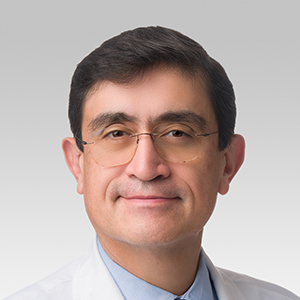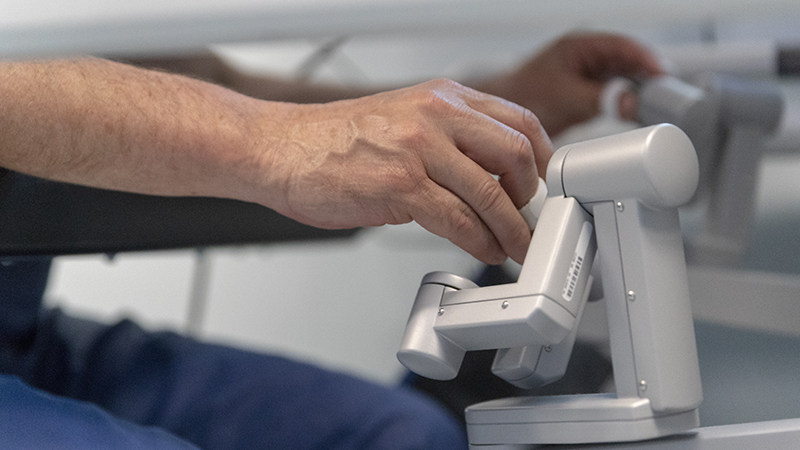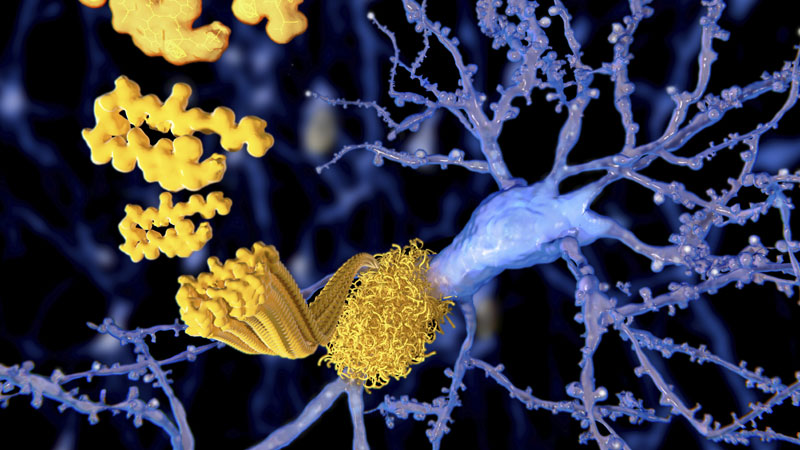Hispanic Transplant Program Removes Barriers to Lifesaving Care
Better Access to Culturally Competent Care
Updated August 2023
This article was originally published in the Winter 2019 issue of Northwestern Medicine Magazine. It has been modified for HealthBeat.
Growing up in Colombia, Juan C. Caicedo, MD, wanted to be an engineer like his parents. But when he realized that he liked working with people more than machines, he turned to medicine.
We’re showing that it’s possible to change these disparities.— Juan C. Caicedo, MD
“Machines cannot smile and hug you,” he says.
Dr. Caicedo, director of the Northwestern Medicine Hispanic Transplant Program, eventually became a transplant surgeon because he wanted to save lives. While participating in an English-language immersion program, he took a trip to Chicago, stopped in at Northwestern Medicine Organ Transplant Center and spoke with its leaders. That fateful meeting ultimately led to a fellowship and an offer to work at Northwestern Memorial Hospital.
“I decided to stay in Chicago, but I wondered if I was letting my people down in Colombia,” he says. “Then I saw the need here. Nobody had any initiatives focused on Hispanics.”
Reducing Transplant Disparities
Determined to change that, Dr. Caicedo founded the Northwestern Medicine Hispanic Transplant Program, which offers culturally competent and congruent transplant care for English- and Spanish-speaking Hispanic patients and families.
When Dr. Caicedo started the program in 2006, the need was clear. Research showed that Hispanic patients often spend more time than other ethnic groups on the kidney transplant waiting list and have a higher mortality rate while waiting for a kidney. They also have lower rates of living donor kidney transplantation, which tends to have better recipient outcomes.
Statistics reflect the need for donor organs. In 2015, more than 98,000 patients were on the kidney transplant waiting list in the United States, according to the Organ Procurement and Transplant Network. Of those, 37% were non-Hispanic white, 34% were African American and 20% were Hispanic. “Minorities make up the majority on the waiting list,” Dr. Caicedo says.
Involving Family in the Patient Process
When he started the Hispanic Transplant Program, Dr.Caicedo was the only person doing research on health disparities at Northwestern Medicine. He was soon joined by Medical Anthropologist Elisa Gordon, PhD, professor of Surgery in the Division of Organ Transplantation at Northwestern University Feinberg School of Medicine, whose research focuses on the ethics of organ transplantation and reducing health disparities. Together, they began studying disparities in living kidney donations from Hispanic patients and identified several major barriers:
- Lack of knowledge
- Language differences
- Cultural differences
- Misconceptions about organ donation and transplantation
- Lack of community awareness
A big part of the Hispanic Transplant Program is communication — not only providing information in Spanish, but also communicating with the patient’s entire support network. Hispanic patients receive in-person education from Dr. Caicedo personally.
“Many in the Hispanic community highly regard physicians, so when a physician delivers the education, it’s a big deal,” Gordon says.
Dr. Caicedo also invites others involved in the decision-making process. “Getting Grandma’s blessing is very important,” Dr. Caicedo says.
Educating Donors on Their Role
Educating families is especially important when patients need a living donor. Asking a friend or family member for an organ can be awkward for anyone. Not only does living donation require major surgery, donation can change the relationship between donor and recipient. If the organ is lost, for example, the donor or patient might feel guilty. That expectation, known as the “tyranny of the gift,” is often the reason patients don’t want to accept living donation. However, tissue from living donor kidneys survives longer, helping to make the transplant more successful, and typically causes fewer complications than deceased donor organs.
Dr. Caicedo and Gordon soon found that potential donors needed education about what the surgery meant for them. They often wonder whether they can exercise or have children after the procedure (they can), or whether they will need to take medication for a long time (they won’t). In addition to the in-person meetings, the pair created Infórmate, a bilingual, culturally targeted website related to transplantation and donation.
Dr. Caicedo has grown the team, which now includes more than 40 Spanish-speaking surgeons and clinicians, social workers, nurses, transplant coordinators, assistants and financial coordinators.
Expanding the Program
By every metric, the program has been a success. A 2015 study comparing the six-year period before and after the program began showed:
- A 91% increase in Hispanic patients on the Northwestern Medicine transplant waitlist
- A 70% increase in the number of Hispanic patients receiving a kidney transplant
- A 74% increase in the number of kidney donations from living Hispanic donors
These numbers fare well against national statistics. For example, while around 30% of Hispanic patients nationwide receive a living donor kidney, at Northwestern Medicine, that rate jumps to at least 65%.
“We’re showing that it’s possible to change these disparities. You just have to change your approach,” Dr. Caicedo says.
In 2010, the program expanded to include liver transplants. Now, Dr. Caicedo and Gordon are helping others implement Hispanic kidney transplant programs into their transplant centers. Inspired by the Hispanic Transplant Program, Northwestern Medicine developed the African American Transplant Access Program (AATAP) led by Dinee Simpson, MD.
The ultimate goal is to continue to broaden culturally targeted interventions like these at hospitals across the nation.
“Our Hispanic Kidney Transplant Program has been a pioneer,” Dr. Caicedo says. “This country is successful because of its diversity, and we should honor that.”







